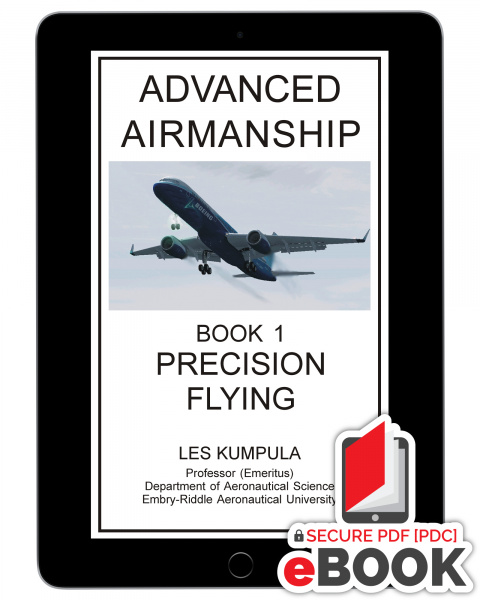
The concept behind Advanced Airmanship came early in Professor Les Kumpula's 30 year career at Embry-Riddle Aeronautical University. A former chief pilot for a major corporation told Prof. Kumpula that he only hired copilots who had a minimum of 500 hours of flight time because by then their basic flying motor skills were mostly developed. This eye-opener, coupled with the observation that recent flying experience lessened in importance if the pilot was mentally involved in flying knowledge, was the genesis of the "substitution of knowledge for experience concept" in the development of flying skill. Historically, pilot proficiency beyond basic motor skills was gleaned from realizations during many years of experience from other crew members and instructors. Prof. Kumpula believes what took years to learn should be able to be taught at the beginning if common tasks were analyzed in detail.
Precision Flying is aimed at new commercial pilots with high-level career aspirations, flight instructors who desire a complete understanding of basic pilot skills, private pilots with a professional mindset and current airline, corporate and military pilots who want to know the "why's" of what they currently do. This book lays to rest the controversial issue of pitch versus power control and clears up the apparent differences between attitude instrument flying methodologies. Then, Prof. Kumpula details the secrets of precision flying that can make any pilot with established motor skills fly like a 30 year veteran.
Topics Include: